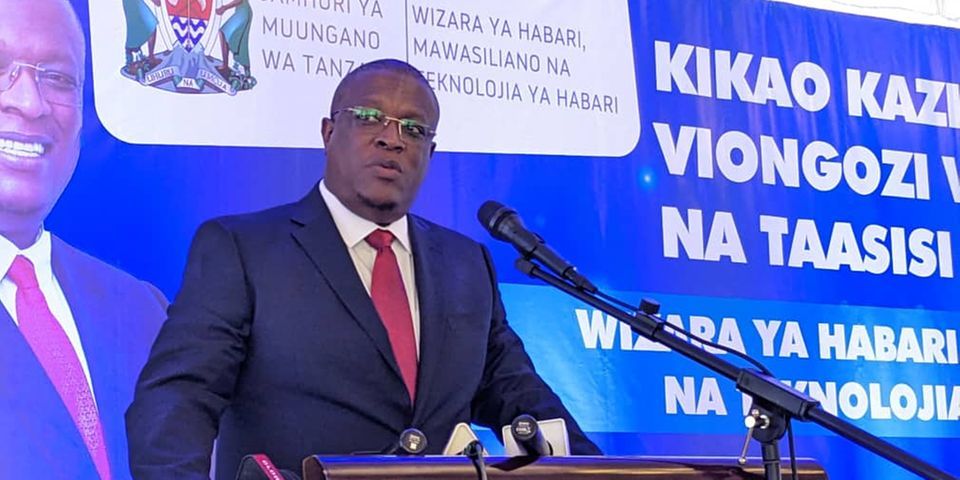
Both President Samia Suluhu Hassan and Mr Nnauye have been cagey about the details but apart from indicating that negotiations are well underway
Arusha. Preparations are in top gear for the launch of the national space satellite, it was announced here yesterday.
The spacecraft may be dispatched to outer space later this year, according to the minister for Information, Communication and Information Technology Nape Nnauye.
He told a retreat of senior officials of the ministry that the government was doing everything possible to ensure the country’s maiden satellite was launched.
RELATED Tanzania set to launch it’s own satellite into space
“We are confident that Tanzania’s satellite will be launched this year. It will be possible… We are currently laying the ground,” he said.
The country’s foray into space technology was first announced by President Samia Suluhu Hassan in Dar es Salaam in May this year.
Mr Nnauye later confirmed to The Citizen on the sidelines of the retreat that, indeed, the project was among the ministry’s priorities for this year.
“The President has already said and issued a directive on the issue. It is now our responsibility to see to it that this is implemented,” he intimated.
Nnauye did not give further details on the project that is likely to cost billions of shillings and which will enable Tanzania to join other African countries with their own satellites.
When she hinted at the ambitious project on May 19th this year, President Hassan did not disclose any details.
However, she was clear that negotiations were underway with the relevant local and foreign partners to realise the scientific milestone.
Ideally, a national satellite holds vast potential for sectors such as communication, agriculture, allied sectors, and disaster management.
However, the technology goes beyond that; touching nearly all the economic sectors, like natural resource endowment as well as oil and mineral exploration.
Africa’s satellites in space
Currently, a fraction of African countries have embraced the technology, with Egypt leading with nine satellites already launched.
It is followed by South Africa with eight satellites in outer space, Algeria (seven), Nigeria (six) while Morocco, the Maghreb zone powerhouse, has three.
Others like Ghana, Sudan, Ethiopia, Angola, Kenya, Rwanda, and Mauritius also feature on the list of African countries with satellites in the sky.
Tanzania’s vision to develop and launch its satellite into space came at a time when several global investors showed interest in supporting the country in that area.
One of them, US tech billionaire Elon Musk, showed interest in positioning Starlink, his satellite internet constellation operated by SpaceX, on the service of Tanzania. He has already done that for Kenya.
READ How disruptive will Elon Musk’s Starlink be in Tanzania?
However, Mr Nnauye insisted last year that there were some legal requirements that needed to be taken care of before letting Starlink in.
Tanzania left behind
Agitation for the technology has also been expressed in equal measure by scholars and politicians, who insist the country is being left behind in the global drive.
When he spoke in Parliament last year Prof Sospeter Muhongo, the MP for Musoma Rural, urged the government to invest in space science to spur economic growth.
He said space science has enormous benefits for the key sectors of the economy like agriculture, water supply, minerals, energy, and tourism.
Tanzania, he argued, needed to have its own satellites like other African states, including its next-door neighbours.
Kenya and Rwanda have in recent years launched their satellites, while Uganda plans to launch one in the near future, he pointed out.
Available information indicates that a total of 20 satellites have been launched by a dozen African states since 2016, totaling 41 in all.
Prof Muhongo, an earth scientist, said investments in science, technology, and innovation should not be seen as an academic exercise.
____
Source here
